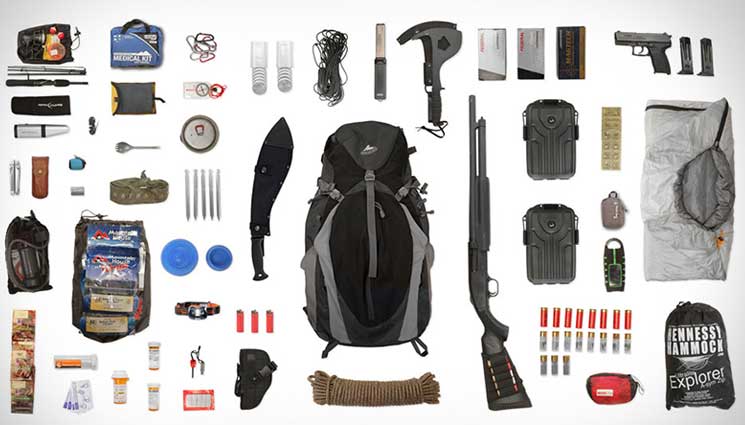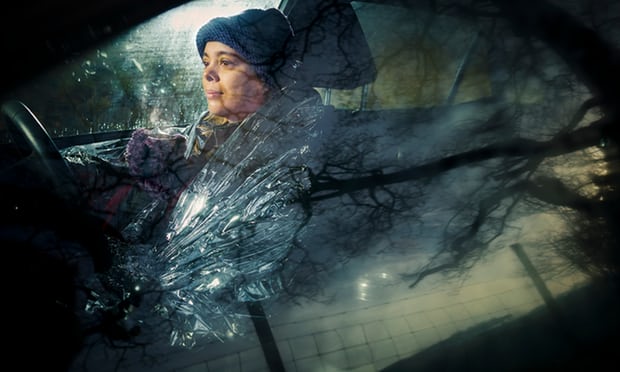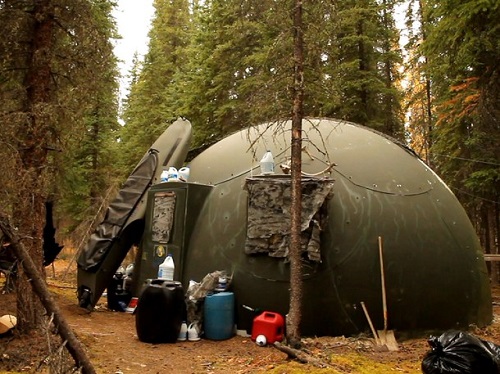BY BRITTANY LODWICH
“It won’t happen to me!”
Disaster is something we usually think happens to others. We live in one of the safest countries in the world, but what about when something bad actually happens? Would you be ready? The idea of prepping might not be as crazy as you think.
Prepping is a form of survivalism that requires active planning for natural disaster or emergency, typically involving stocking canned food, ammunition, or other survival supplies. With climate change on the rise, threats of disease, human conflict and fear of nuclear attacks, preppers are taking every precaution they can.

Extreme prepping can involve numerous basement shelves stocked with canned foods to digging out a bunker in your backyard. National Geographic’s show Doomsday Preppers showcases a lot of these people and tells the story of why they do what they do. Depending on the type of person you are, it may seem like the prepping communities have lost their minds getting ready for the zombie apocalypse, but if you really listen and look behind the meaning of it all, you might decide to hop on board.
The act doesn’t have to go as far as the extreme. To be prepared will just make scary and unsuspecting events much simpler. It’s a good idea to know where your supplies are and that everything is organized and in an accessible spot. It has happened before during our cold winters where we have had rain turn to heavy icicles overnight, resulting in many tree branches falling onto powerlines.
Some neighbourhoods and industries were without power for a few days. In this situation having another heat and light source can go a long way. Who knows what would have happened if it went on any longer or even became worse.
Prepper Sarita Robinson recently told The Guardian that people think it won’t happen.
“This country is one of the safest in the world. We have no killer animals. We don’t have earthquakes. There are no major tsunamis. We don’t really have to prep for a huge natural disaster – and there’s very little you could do to prepare for a nuclear event even if you wanted to – so we prep more pragmatically.
“Suppose you lose your job and money’s an issue. Or the electrical grid goes out and the food chain goes down and all of a sudden every man and his dog is arguing over a bag of sugar. Do you have your own supplies? Do you have the means to cook? And what about keeping warm – could you make a fire? Some of us buy food through an app; groceries are delivered to our front doors. Do people know how to survive without electricity?”

“The difference between me and someone else? Imagine if we both lost our jobs at the same time. Realistically, I haven’t got to spend any money. I’ve got a back-up of food supplies to last six months. I haven’t got to buy wood. I haven’t got to turn the taps on, because I’ve stored rain water and filtered it for drinking. I haven’t got to put the heating on, because I have other means of keeping warm at home. I could be unemployed for a while without it impacting me financially. Whereas someone else, they’re thinking: ‘Shit, I’ve got a month’s wages. I don’t know how long this can go on for.’ That’s a kind of prepping in itself,” says Robinson.

Minus the “world ending” scenarios, there are some more realistic events that we can take precaution of. If it all comes down to it, there are some possible scenarios that may not allow you a lot of time. What if your town is getting emergency evacuated? You won’t be able to reach for everything you need. Especially in a state of fear and panic it’s easy for things to escape your mind. To help yourself, keep a go bag with the essentials in it, it will surely give you a sense of security. A lighter, sleeping bag, warm clothes, drinking water, batteries, medical supplies and even miscellaneous tools will help benefit you in any dire situation. Additionally, keeping a go bag in your car is an asset if any unfortunate situation happens to fall in your lap.
Ultimately it is up to you for what you want to be prepared for and for how long.
Some preppers prefer to be stocked with supplies that will last them seven days, while others are prepared to last months. Do you want to be ready to abandon your house and survive on your own if you had to? Or are you content with having some extra food and water in the back of your cupboard? The scenarios are endless but it is important to at least ask yourself these questions.
After all it is better to be safe than sorry.
